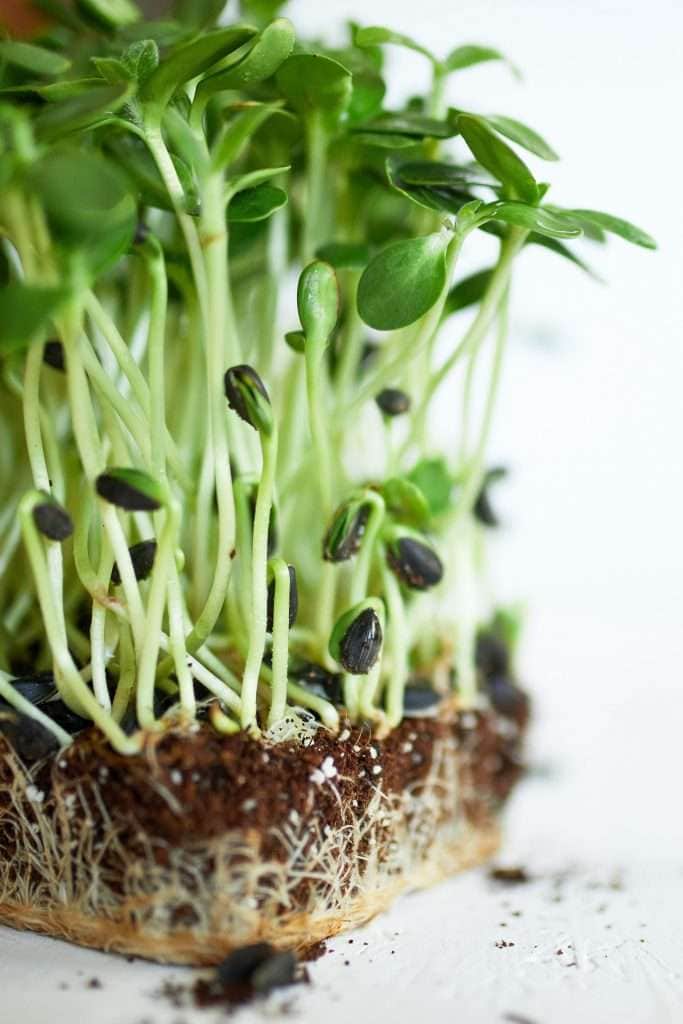The Proven Health Benefits of Fermented Vegetables
The health benefits of fermented vegetables are vast and dependent on the fermentation process and ingredients. Fermented vegetables provide health benefits in two ways; first, through the interaction of live microorganisms with your body.
Second, fermented vegetables contain microbial metabolites synthesized by microorganisms during vegetable fermentation. Let’s talk about these microorganisms and the metabolites they produce during vegetable fermentation that confer proven health benefits.
GABA
GABA stands for Gamma-aminobutyric acid. It’s a naturally occurring, non-protein amino acid that is the primary inhibitory neurotransmitter known to counterbalance the action of the excitatory neurotransmitter glutamate. Think of your brain as a high-speed train. During times of anxiety and stress, GABA would be the brakes that slow you down.
The inhibitory effects of GABA facilitate sleep, reduce mental and physical stress, lower anxiety, and can create a calm mood making it an essential contributor to the body’s overall psychological and physical balance.
Scientists are studying GABA for its multitude of benefits like:
- relieving anxiety
- improving mood
- inhibition of cancer cell proliferation
- reducing symptoms of premenstrual syndrome (PMS)
- aiding in attention deficit-hyperactivity disorder (ADHD) treatment
- lean muscle growth
- stabilizing blood pressure
- relieving muscle pain
GABA is produced by Lactobacillus spp. during lactic acid fermentation of vegetables! Lactobacillus spp. have the enzyme glutamic acid decarboxylase. They can use this enzyme to break down L-glutamate in plant matter into GABA.
You can find GABA in tempeh, fermented kimchi, sauerkraut, pickles, and sometimes fermented sourdough. It is also produced in your gut when you eat a rainbow assortment of fresh and cooked vegetables. No surprise, it’s just another way our gut microbiomes look out for our mental health.
It’s best to get GABA from food since biologically synthesized GABA is more usable by the human body than chemically synthesized GABA in pills/supplements. That means when microorganisms, like lactobacillus, produce GABA through fermentation; it is simpler for our bodies to use than chemically synthesized GABA that labs use for vitamins and supplements.
Melatonin
Many people have told me that eating fermented foods helps them to sleep. Some people have said they can’t sleep without sipping on some fermented vegetable brine. I’m so glad these things help people sleep well! But why do fermented foods help with sleep? There’s a fascinating answer to this question, and it’s one of the proven health benefits of fermented vegetables.
Of course, by consuming fermented vegetables, you’re strengthening your gut microbiome population, thus, enhancing your gut-brain connection. But the sleep-promoting effects of fermented foods have a more immediate and straightforward explanation: melatonin synthesis in fermented foods!
The beneficial Lactobacillus bacteria involved in fermentation have the ability to convert tryptophan in foods into serotonin and then serotonin into melatonin using an enzyme called tryptophan 5-hydroxylase. Microbes are very talented with their enzymes.
What is melatonin?
- It’s a powerful antioxidant that protects against oxidative stress and can help prevent cancer by inhibiting cancer cell growth.
- It’s proven to help regulate all circadian processes, such as mood, sleep, sexual behavior, and immunological status.
- The pineal gland naturally produces it in our bodies, and this production is influenced by light.
- There’s significantly more melatonin production in the human gut due to the bacterial enzymatic synthesis of melatonin.
- Melatonin can help slow aging due to its antioxidant properties.
- It can protect against cardiovascular disease.
- Researchers hypothesize that melatonin can aid in Alzheimer’s prevention.
All of our bodies and many plant foods naturally contain and produce bioactive (usable by your body) melatonin, and bacterial fermentation can greatly increase the melatonin content in plant-based foods. This is beneficial for us, especially if we need help regulating stress, circadian rhythms, and sleep.
Bacterial melatonin synthesis in vegetable fermentation is so successful that “probiotic synthesis of melatonin” has been patented by a pharmaceutical company. The patented process employs the industrial-scale use of various Lactobacillus species found in fermented vegetables to synthesize melatonin biologically; this is the melatonin we take in pill form.
Instead of extracting one component of a holistically beneficial food, to throw it in an expensive pill, I think we should just eat the affordable, holistic, nourishing foods that naturally contain beneficial compounds like melatonin.
You can find melatonin in many fermented foods like sourdough bread, tempeh, yogurt, fermented pickles, and red wine.
Bioactive Compounds
One significant way fermented foods provide health benefits to those who consume them is through bioactive compounds. Bioactive compounds are small molecules that confer biological action in the body once the molecule is converted through microbial enzymatic and metabolic actions in fermentation.
Phenolic compounds are a major group of bioactive compounds converted to bioavailable forms through the fermentation process. This group includes flavonoids, tannins, and phenolic acids. You can find phenolic compounds in plant foods like vegetables, fruits, legumes, and whole grains. These compounds are natural antioxidants and immune system modulators. Phenolic compounds have been thoroughly studied for their wide range of health benefits as antioxidants and preventions for heart disease, inflammatory diseases, cancer, and diabetes.
The health benefits of phenolic compounds depend on their bioavailability. Phenolic compounds in raw fruits and vegetables can be bound to plant cell wall components, making them insoluble. These bound, insoluble phenolic compounds can be converted to bioactive forms by healthy microorganisms in the large intestines, then used by the body. So, the benefit of phenolic compounds in raw or cooked fruits and vegetables is directly related to the health and make-up of an individual’s microbiome.
The gut-healthy microbes that convert phenolic compounds to more easily used forms in your gut are also found in fermented vegetables. Lactobacillus spp. can convert bound phenolic compounds in vegetables into bioactive forms in the last stage of vegetable fermentation. Consuming vegetables in a fermented form allows you to consume more bioavailable phenolic compounds with enhanced functional and antioxidant properties.
Probiotics
This one is a given! You can’t ferment vegetables without the help of beneficial microorganisms. Most of the Lactobacillus species found in fermented vegetables are considered probiotics, meaning these bacterial species confer health benefits to you when consumed.
Fermented vegetables are considered the best source of probiotic bacteria due to the stresses exerted upon the bacteria during the fermentation process. The stressors in the fermentation environment and the diversity of the fermentation ecosystem make the Lactobacillus spp. in fermented vegetables more adapt to survive the digestive journey and more adapt to integrate into the microbiome.
Vitamins
Last but not least, fermented vegetables contain more available vitamins. The vitamin content of fermented vegetables is dependent on what vegetables are being fermented, the fermentation process, the fermentation timeline, and the microbial community involved. So it isn’t easy to generalize what vitamins can be found in fermented vegetables.
Fermentation is the most natural, cost-effective way to fortify more vitamins in foods. Depending on the ingredients used, the concentration of vitamins such as riboflavin, folate, and vitamin K can naturally increase through the fermentation process.
These vitamins are synthesized by the microorganisms involved in the fermentation process when they metabolize the vegetable matter. Sourdough, sauerkraut, fermented pickles, and tempeh are all rich in riboflavin, folate, and vitamin K thanks to the microbes that ferment these foods.
Fermented Vegetable Recipes to Try
- How to Ferment Sauerkraut with Orange, Sesame, and Ginger
- Roasted Garlic Sauerkraut with Black Pepper
- Fermented Beet and Red Cabbage Sauerkraut
- Fermented Dill Pickles

Reference
Frias, Juana & Martinez-Villaluenga, Cristina & Peñas, Elena. (2016). Fermented Foods in Health and Disease Prevention.
Phenolic Compounds in Brassica Vegetables
Bioactive compounds in foods: their role in the prevention of cardiovascular disease and cancer





















Did you misspell Melatonion?
Thanks for pointing that out